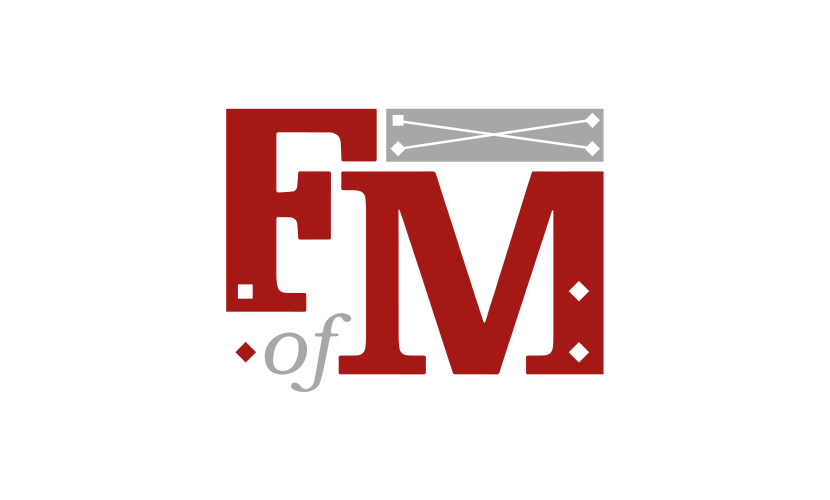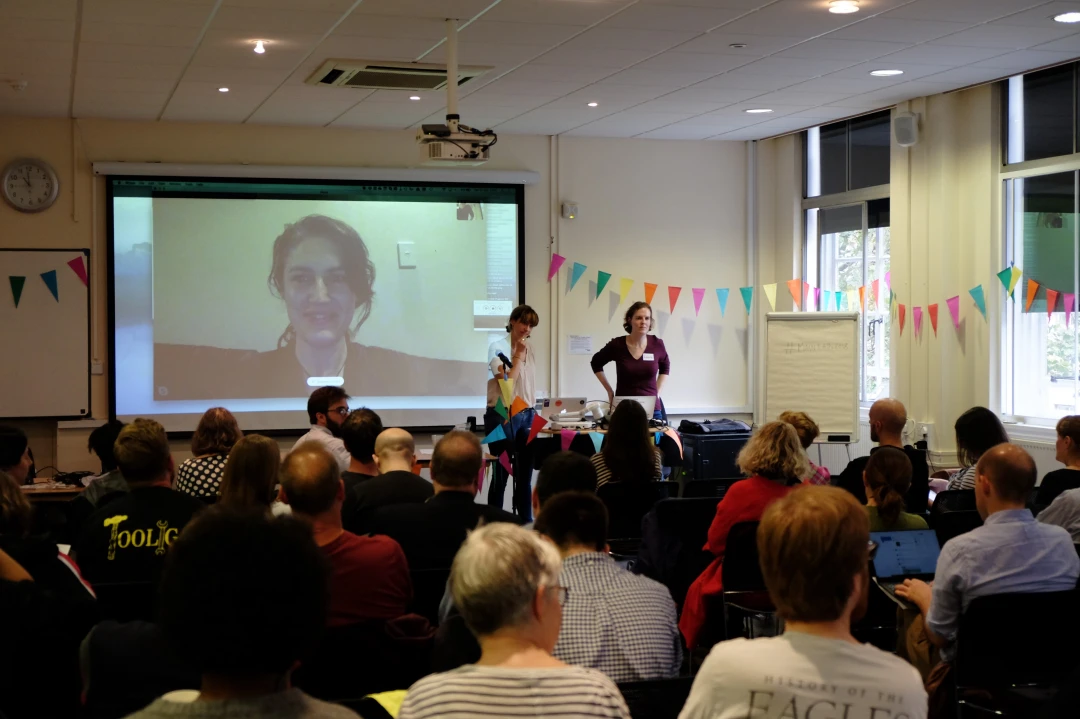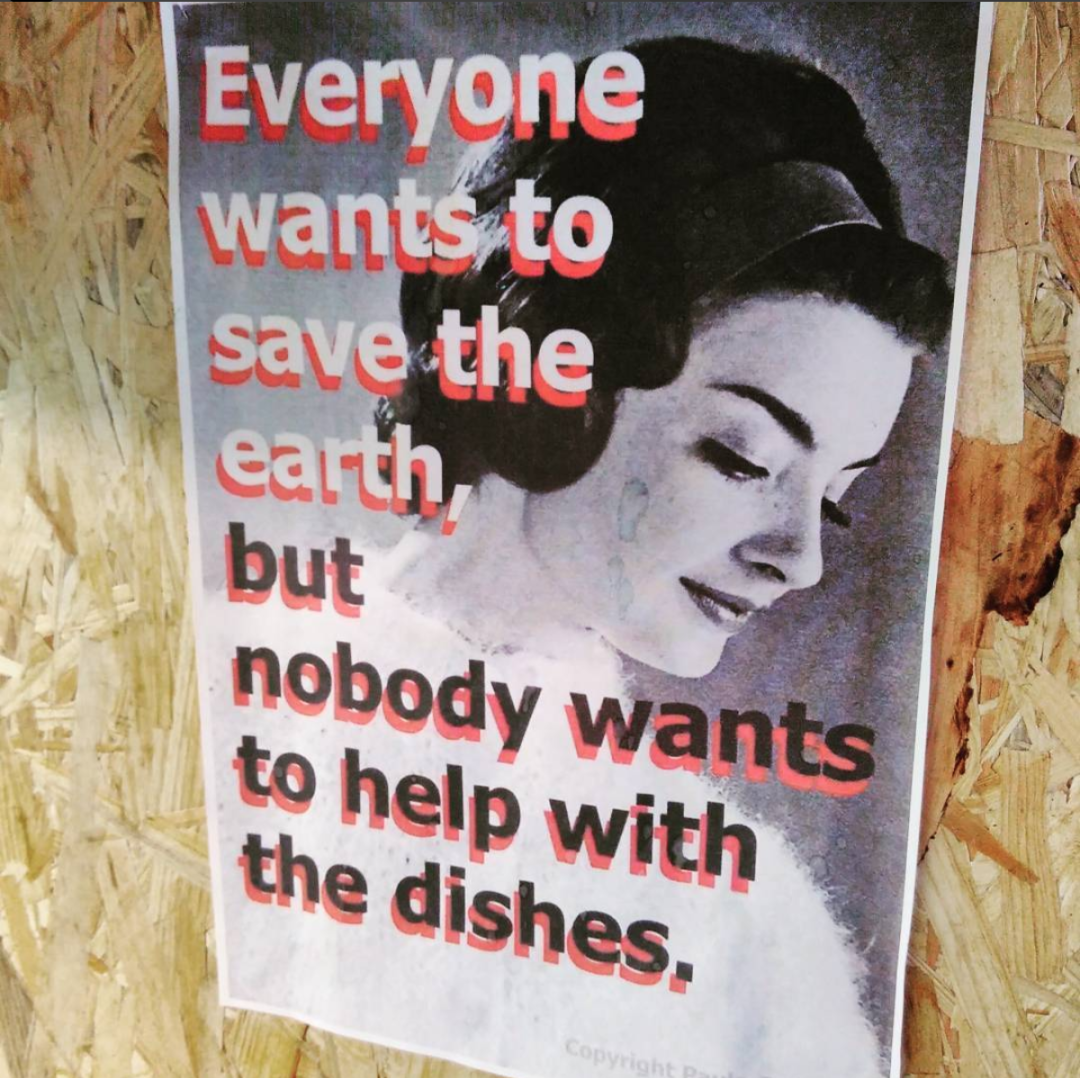Why is maintenance so difficult to talk about?
Naomi Turner, 13 Aug 2020

We don’t have the right words or metaphors yet.
The Festival of Maintenance (FoM) is a celebration of those who maintain different parts of our world, and how they do it, recognising the often hidden work done in repair, custodianship, stewardship, tending and caring for the things that matter.
FoM is highly interdisciplinary, and as extrapolated by Shannon Mattern with such exquisite care, both its strength and its curse. With FoM now in its third year, I wanted to write broadly about maintenance, why it’s difficult to do so, and what we are trying to do in the next chapter of the festival.
What we do
We want to show the often surprising contexts which require maintenance, who maintains, or indeed where maintainers work.
These could be aspects of maintenance with which we are familiar — the losing battle against potholes, bridge repair or the guerilla gardening movement in the wake of austerity policies in the UK. It might mean re-assessing the permanence of our immediate environment (for example, thinking about concrete not as solid but as a decaying, pseudo-organic material), and instead shifting to thinking about what it means to care for it in the medium or long term.
However, the more we innovate, build, create or procure in any area, the more we need to maintain.
Far from being merely ethereal, the internet will not work without reliance on physical components which require a vigilant level of maintenance. Artists James Bridle and Ingrid Burrington turn our attention to the complexity and socio-political dimensions of these networks, as well as their physical degradation.

At FoM, we’re also interested in the maintenance needed to make the internet work in the day-to-day. Ben Ward’s talk provided an insight into the battle of maintaining a system of Internet of Things sensors — a tangled mess of navigating expiring domain registrations, whilst protecting the sensors themselves against the wind, rain and moss. Our interest also extends to open-source software and the programmers who have a dual role in building and maintaining it — at the same time exploring the care of digital collections and archives at the British Library, or the community management without which Wikipedia would simply not exist.
“Like discovering an entire other hemisphere of the world” — 2018 event audience feedback
Examining maintenance as a collaborative activity might be a way to explore how maintainers from different disciplines might learn from each other, particularly when this kind of work is not always apparent or celebrated. Collaborative endeavours are rarely completely egalitarian — there is always delegation, negotiation and management of resources or other capital — that outsiders rarely see.
In this vein, we might look to the social enterprises or charitable organisations so beloved of the big society, as outlined by Oliver Holtaway, who spoke about his experience of the excitement of launching a Community Interest Company to keep his team running (Bath City FC), versus the very real challenge of maintaining interest once the initial excitement of the takeover has died down. Like the community maintenance of Wikipedia or OS Software, these organisations are almost always reliant on volunteers. Again, the maintenance of these communities themselves (needed to keep them the lights on) happens behind closed doors, together with the acknowledgement that this in itself is a form of labour.

But there is a deeper, quickening dimension to maintenance. The COVID pandemic has exposed the fissures and cracks in our society. The people that maintain us, not wealth creators, are now essential workers. An initial push to thank our NHS workers, binmen and supermarket workers has been replaced with a growing recognition that clapping alone is not enough.
As a result, we have seen a resurgence of interest in academic and policy circles on how care and repair as being fundamental to our world and how we treat each other. Could this really translate into a new social contract, which better recognises maintainers’ contribution? Will cleaners — now so incredibly important in stopping the spread of COVID, and opening up offices, restaurants and other social spaces to keep our economy functioning — be treated any differently? Probably not, any time soon, as so much needs to change before this will happen.
Why it’s hard to speak about maintenance
Much has been written about how we don’t have the right words or metaphors for the internet yet. This absence inhibits what we build — for how can we create what we can’t yet imagine?
Maintenance activity is also characterised by a series of ill-fitting metaphors, which negatively affects how we tell each other about it. David Heath, Tech Lead at the Government Digital Service, notes that ‘One of the biggest problems is the underlying industrial or manufacturing metaphor. Gardening is a more appropriate metaphor for software-based systems’. Apart from in fairly technical and/or well-established industries, ongoing maintenance is generally not measured or accounted for.
With trepidation, I suggest that this is because maintenance falls outside of our current value creation system. This gets political fairly quickly, because understanding and accounting for maintenance practices may undermine who or what we currently think to be important. We know, of course, that the majority of unpaid household labour is carried out by women. If we think of life as predominantly a maintenance activity, it undermines the idea of a linear narrative of progress, the actors this empowers and the language we use to express it.
For me personally, maintenance is something of a gateway drug to thinking about power relations, new forms of cooperation and re-appraising how we privilege innovators (a tiny, tiny number of people) over maintainers (the rest of us). Like many, I find the hero-worship of these figures caustic, a damaging and simplistic narrative which conveniently edits out the labour of others (see Ella Fitzsimmons’ talk on why this happens). It’s a myth so pervasive in our society that it proves hard to counter. Furthermore (and again even more relevant in a pandemic), maintenance activities such as cleaning are often outsourced and therefore obscured from view, adding to our sense of separation and alienation from the systems around us.
At a deeper level, it’s about recognising the courageousness of caring for others — even indirectly through maintenance of systems or objects — particularly when this goes unnoticed.
It’s important to flag that we are not alone in the endeavour to make maintenance more coherent or even active as a concept. The study of repair itself is well established in Science, Technology and Society (STS) Studies. Cooperation is one of the main pillars of the pursuit of anthropology and sociology. World events mean that interest in maintenance is gathering pace in mainstream press. We’ve also put together a rough list of articles that inspire us here.
We remain heavily inspired by The Maintainers — a US based research group initially interested in interrogating the value placed on innovation, which may have in part contributed to placing it in a false dichotomy with maintenance. The Maintainerati is a community and annual unconference of open source web developers, based in Berlin. Finally, Les Maintaineurs (based in Paris) go further, arguing that maintenance can be employed as a different way to think about society at large — the maintained (such as landlords) and the maintainers (the rentier class) — and are even prototyping new platforms, around data co-operatives, for example, that seek to redress this imbalance.
What we’re up to and where we’re going
With maintenance, care and repair so often cited in the news, we want to think about who else we can reach, and who this movement might help.
We’ve been working with The Maintainers to deliver roundtable events on how COVID has brought the maintenance we need into sharp focus — workers in the gig economy; and the social care crisis. Next, we’ll be considering the role of EdTech in a new world for schools, colleges and universities.
We’re now looking to hire a designer who can help us with a rebrand and get people as fired about maintenance as we are.
We’re looking for someone who can help us communicate some tricky concepts — care, repair, shared (and often hidden) labour — through a cleaner, more recognisable brand. Please contact me (naomi [at] festivalofmaintenance [dot] org [dot] uk) for a copy of the brief and fee.